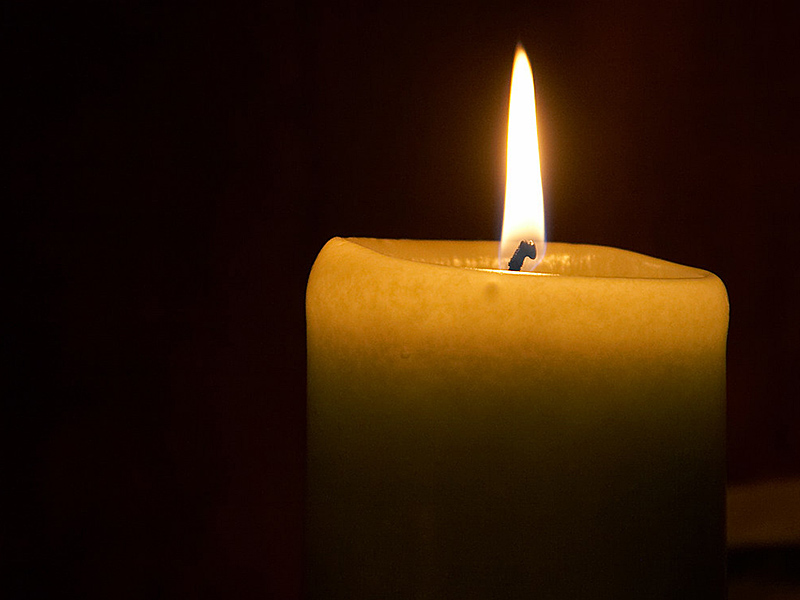Some people just don’t like visiting shivah houses. They feel awkward. They don’t know what to say or how to behave. And then there’s the matter of death. In a way, Judaism makes shivah and the shivah call as easy as possible. There are traditions and there are rules, and there are people with wise advice, like this.
To go or not to go
Tamar Fox suggests that even if you feel excruciatingly awkward, you should go. Even if you can’t think of anything to say, you should go. And even if you don’t think you’ll get a chance to speak to anybody in the family, you should still go. Someone will notice that you’re there. Fox writes, “I once went to the shivah for a son of a rabbi in my community. I went for davening, but didn’t stay for the meal afterwards, and didn’t get to talk to the rabbi or anyone in the family. I didn’t think anyone saw me, but six months later in the middle of a conversation about something else entirely, the rabbi told me how much he appreciated seeing me there.”
What not to say
Have you heard one of these phrases emanate from someone’s mouth at a shivah house? Lori Palatnik has and explains why they just don’t work.
- “I know how you feel.” (No you don’t. Each person feels a unique loss.)
- “At least she lived a long life.” (Longer would have been better.)
- “It’s good that you have other children,” or, “Don’t worry, you’ll have more.” (The loss of a child, no matter what age, is completely devastating.)
- “Cheer up – in a few months you’ll meet someone new.” (He/she has just lost the other half of their soul!)
- “Let’s talk about happy things.” (Maybe later.)
Although shivah is not the time for levity, maybe now is. The video Shtick Yeshivish People Say at Shivas says it all – and why you shouldn’t:
- I’m not 100 per cent sure about the scientific facts but somebody once told me the father dies before the mother?
- I remember how your father used to bug you to go to shul. You just never went. I mean does God have a sense of humour? Now you’re stuck with it for a year.
- You know something; you look good in a beard.
Shtick Yeshivish People Say At Shivas POV from Mike Fish on Vimeo.
What to do/ What to say
Before you say a word, don’t be scared of silence. Halachah teaches that the mourner is supposed to initiate talk. Amanda Bradley adds, “If the mourners are not talking to you, it’s OK to sit quietly until they do. They may be struggling to hold back tears, or remembering a particular memory, or just feeling tired of conversation.”
Once they speak, introduce yourself. Unless it’s obvious, don’t assume the person sitting shivah knows who you are. Remind them of your name and connection to the deceased.
Then a simple “I’m so sorry” or “I don’t know what to say. This must be really difficult for you” or “I was so sorry to hear about _______.” Be sure to name the deceased. Why? Because one of the most powerful ways to comfort mourners is to encourage them to remember the deceased.
Tamar Fox has an intriguing suggestion: bring photographs. “If you have any great pictures of the deceased, make copies and bring them for the family. Often a display will be set out. Showing the mourners the pictures can be a good way to start a conversation about good times with the deceased. Don’t push it, but offer the pictures as a gateway.”
Timing is everything
“It seems to me that anything less than a 10-minute visit, unless you’re the president of the United States or something like that, is too quick,” writes Rabbi Aryeh Markman. “God will forgive your time management goals this day, unless of course you left a child in the bath tub.”
A shivah visit should last about 20 minutes, perhaps longer if there are few people around. If a service is held, come a few minutes before and stay a few after. Mourners uniformly report how exhausted they are by the shivah experience; do not overstay your welcome.
Know how to say goodbye
In the Art of Making a Shivah Call, Dr. Ron Wolfson quotes the traditional phrase that is recited upon leaving a shivah house. “Ha-makom yenakhem etkhem betokh sh’ar a’vaylay Tzion v’Yerushalayim.” May God comfort you among the other mourners of Zion and Jerusalem.
Wolfson elucidates, “The great genius of Jewish bereavement is to empower the community to be God’s partner in comforting those who mourn. In making a shivah call in an appropriate and traditional way, we are the medium through which God’s comfort can be invoked. In learning the art of coping with dying, we are, in fact, learning an important aspect of the art of Jewish living.”
It’s not over when it’s over
“When the shivah period has ended, don’t expect the mourner’s relief to suddenly break forth or sadness to evaporate,” writes Rabbi Markman. “That takes time. So when you see the mourner participating in the world again, treat them with care. Constantly be checking in with the mourner. They will still like to talk about their loss. It is an awful feeling to be abandoned after the shivah, even for introverts. Spend some private time later on with the mourner, ‘just because.’”
* * *
Thanks to my dear friend Mark for the idea for this column. May you and your family be comforted among the other mourners of Zion and Jerusalem.
